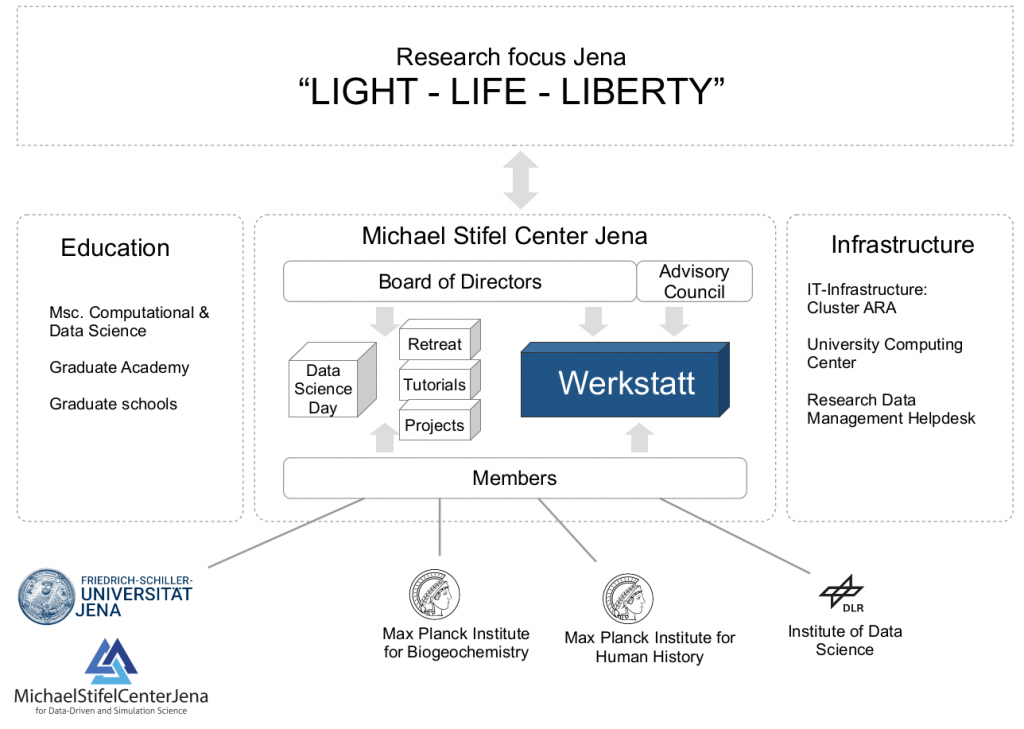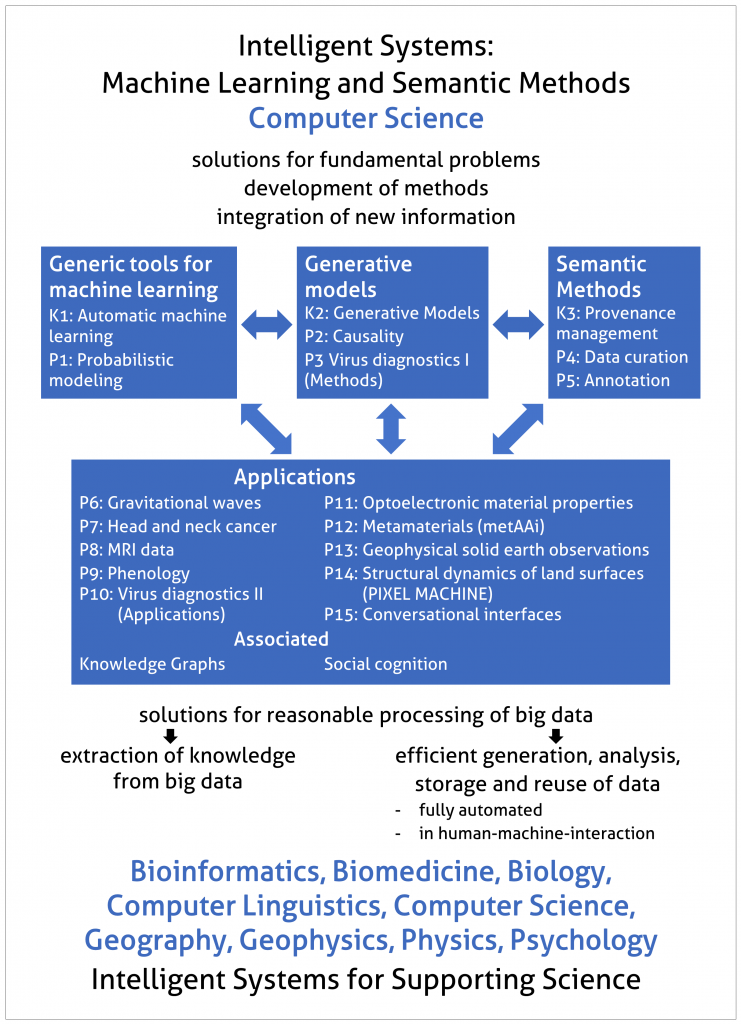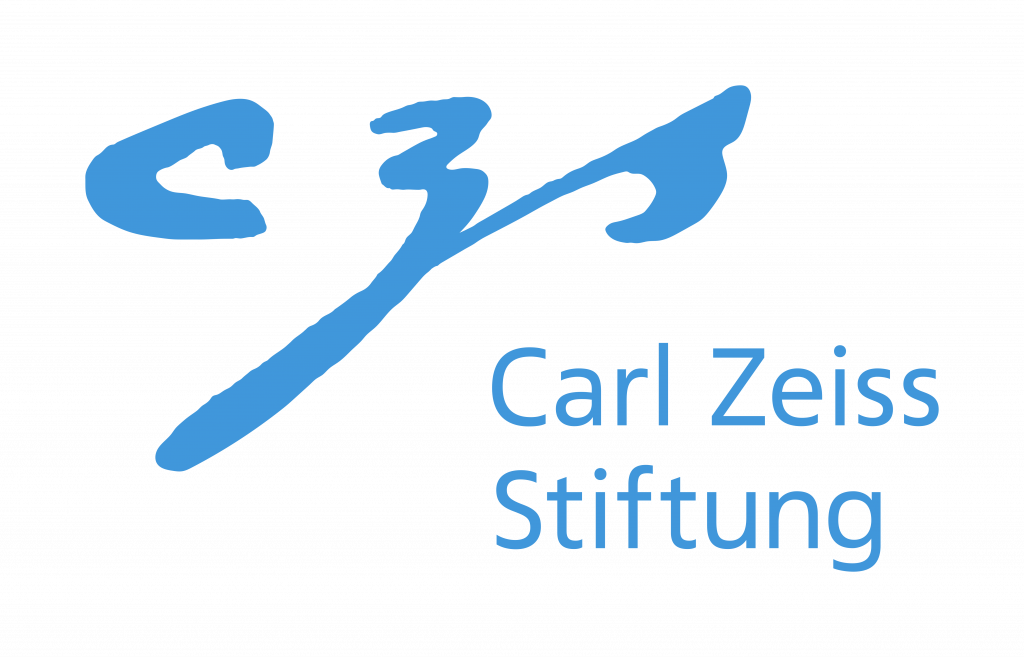*“Werkstatt” is the German term for “workshop” (in the sense of manufactory)


Data plays an increasingly important role in many scientific disciplines. Though data generation is huge, data use is still very limited. In many cases, manual analysis is no longer possible due to the large data volume, and automated analysis is not yet possible due to the lack of tools and/or expertise.
On the other hand, intelligent systems have been developed rapidly in recent years. Thereby, in many disciplines the expectation is emerging that they will help to overcome significant challenges and to establish a completely new way of science. However, fundamental problems from the computer science point of view have to be solved in the first instance. Second, generic tools must be developed on which specialized solutions can be built.
The “Werkstatt” addresses the fundamental questions in computer science and application fields. Breakthroughs in these areas are essential for successful digitization in the sciences. For this, it focusses on three fundamental research topics in computer science as well as on research in applying the methods developed in these fields in different disciplines.
Intelligent systems combined with machine learning promise a solution on how to extract knowledge and how to carry out different steps in the process of the data life cycle from data collection and analysis to storage and reuse, either fully automated or in human-machine-interaction.
On the one hand, pilot projects create the opportunity for scientific breakthroughs in three key areas: (1) Fundamentals of generic tools for machine learning, (2) Integration of domain knowledge in machine learning, the explanation of results, as well as the analysis of causality and (3) Semantic methods for data lifecycle support. Findings in these areas are then applied by the pilot projects, which range from physics, bioinformatics, biology, and biomedicine.
Here, researchers from different career levels, different organizations, and different backgrounds come together. Thus, an ideal framework has been created, within which all steps from the promotion of young scientists to the joint processing of challenging, fundamental research projects will take place. Besides, the Werkstatt will also be involved in other activities for the promotion of young talents and networking. To implement this strategy, among other things, annual retreats, joint teaching, and learning activities are planned.
Main goals
- to make the usage of scientific data more efficient and
- to foster interdisciplinary collaborations in all fields of digitization.

Structure
- 1 core project with one postodoc in each of the three main topics
- 1 or 2 pilot projects with one PhD student each in each of the three main topics
- 10 pilot projects with one PhD student each in the application fields
- 2 associated pilot projects with one PhD student each in the application fields, partly funded by MSCJ and partly externally
The tools developed in the three core projects will be applied in the pilot projects.
References
Samuel S, Shadaydeh M, Böcker S, Brügmann B, Bucher SF, Deckert V, Denzler J, Dittrich P, von Eggeling F, Güllmar D, Guntinas-Lichius O, König-Ries B, Löffler F, Maicher L, Marz M, Migliavacca M, R. Reichenbach J, Reichstein M, Römermann C, Wittig A (2020) A virtual “Werkstatt” for digitization in the sciences. Research Ideas and Outcomes 6: e54106. https://doi.org/10.3897/rio.6.e54106
Funding

Project duration: 01.04.2019 – 31.03.2024
The project “A Virtual Werkstatt for Digitization in the Sciences” is supported by the Carl Zeiss Foundation.